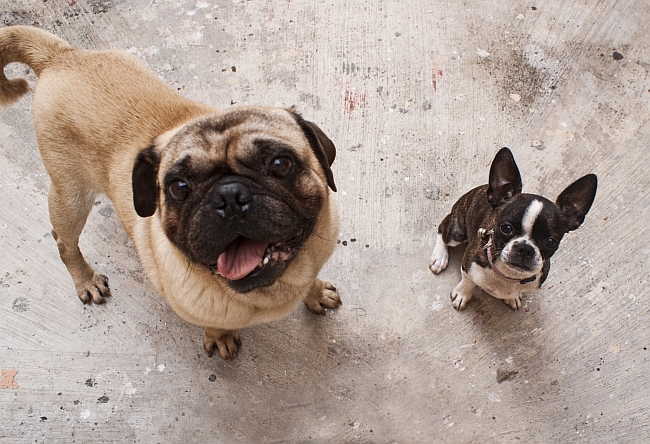
One of the most wonderful thing about canines is their distinct uniqueness and variety of looks. From enormous muscular breeds to lithe fragile dogs, from the large and sinewy, to small and fluffy pups, there can be major characteristic distinctions amongst the breeds. One of these features found commonly amongst several kinds of dogs is the brachycephalic condition.
What Is a Brachycephalic Dog?
The word brachycephalic comes from the word brachis meaning “short” and cephalus meaning “head.” A brachycephalic dog may be easily identified as a “squat-nosed” or “smushed-nose” breed. This feature which many pet-owners find endearing, is the result of selective breed that occurred when breeders sought to establish dogs with shorter muzzles, turned-up noses, and lower jaws. Since this is a human-influenced anatomical design (based on the replication of unfavorable and unnatural mutations found in breeding) there are unfortunately a fair number of health concerns associated with dogs who are brachycephalic. This condition is comprised of several physical traits contributing to the respiratory limitations of these dogs. These are: the elongated soft palate, the hypoplastic trachea, the short nasal turbinate, and the narrow nostrils (called “stenotic nares”).
How Does This Condition Affect a Dog’s Health?
Most brachycephalic dogs tend to struggle with difficulty breathing, and trouble with the upper respiratory tract. The shortened nasal cavity and nostrils, coupled with the elongated soft palate obstruct the normal breathing passageways which cause problems for the normal function of a dog’s breathing. Brachycephalic breeds may snore loudly as a result, be more susceptible to allergens in the atmosphere, they may sputter, sniffle, cough or even gag while trying to eat or drink. Some of the most dangerous aspects of this condition occur when a dog is overheated, or has exerted too much physical output. One of the major ways a dog cools down his body temperature is through panting, which brachycephalic dogs have great difficulty doing. These breeds have to work twice as hard to cool their bodies through panting, and the strenuous effort has been known to cause brachycephalic dogs to collapse when the weather is too hot, humid, or they have pushed themselves too far in exercise. Obesity, over-excitement, running, allergies, pollens and toxins in the air, as well as extremely hot or extremely cold temperatures all can have a negative effect on brachycephalic dog breeds.
Fortunately, there are surgery options for brachycephalic dogs to have their nostrils widened, or their soft palate tissues trimmed to give greater freedom to the respiratory system. These procedures ought to be accomplished early in the dog’s life to avoid complications later on. Owners of short-nosed dogs sometimes use air purifiers in their homes, and prefer to walk the dogs with a harness rather than a collar (so as not to strain the trachea).
Which breeds are Brachycephalic?
- French Bulldogs
- Pugs
- Brussels Griffon
- Japanese Spaniel
- Pekingese
- Shih Tzu
- Boston Terriers
- English Bulldogs
- Boxers
(Some consider Cavalier King Charles Spaniel dogs to be brachycephalic as well.)
*Note: In the feline world there are also brachycephalic breeds, such as Persians and Exotic Shorthair cats who also face similar respiratory challenge as their canine counterparts.

